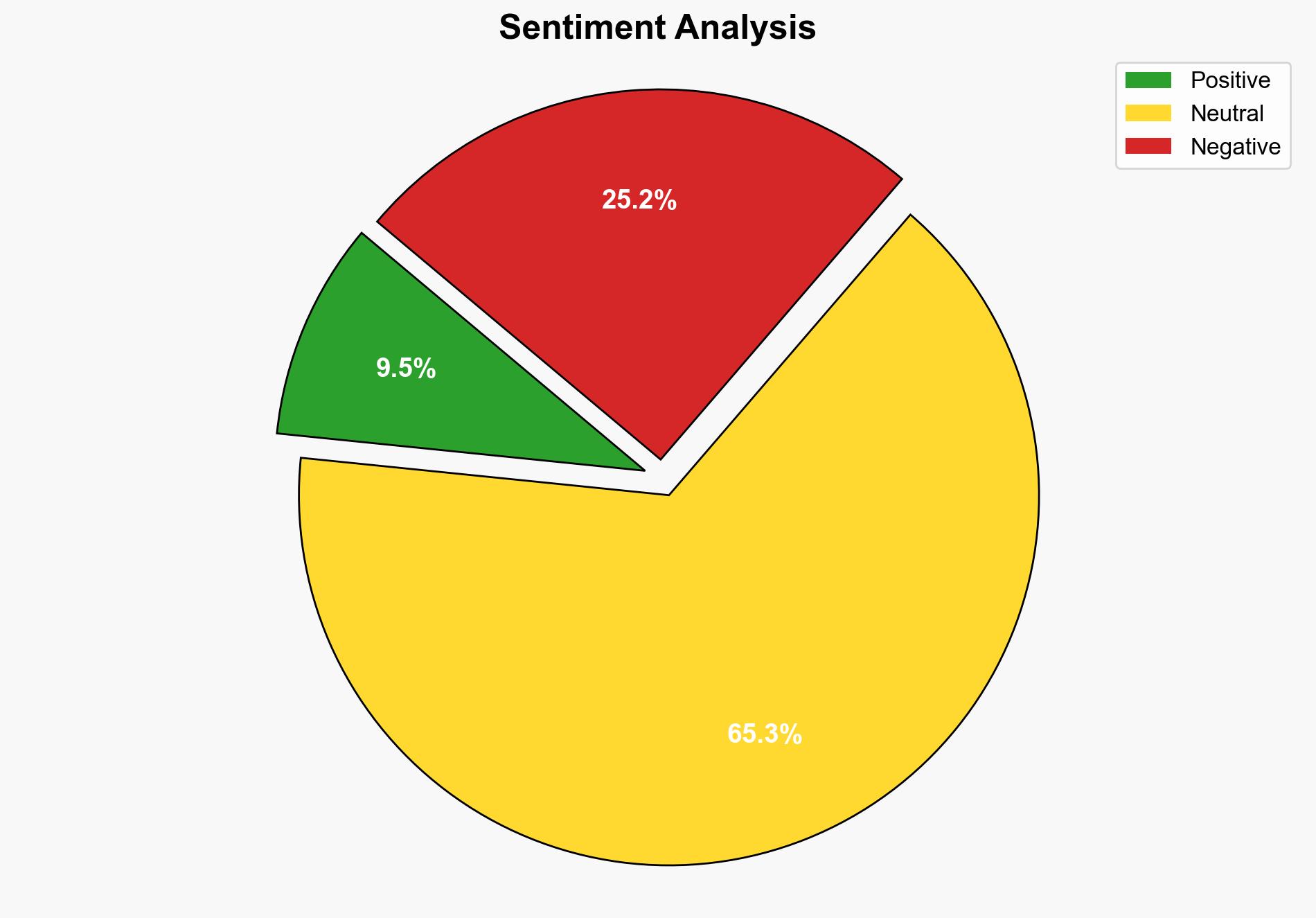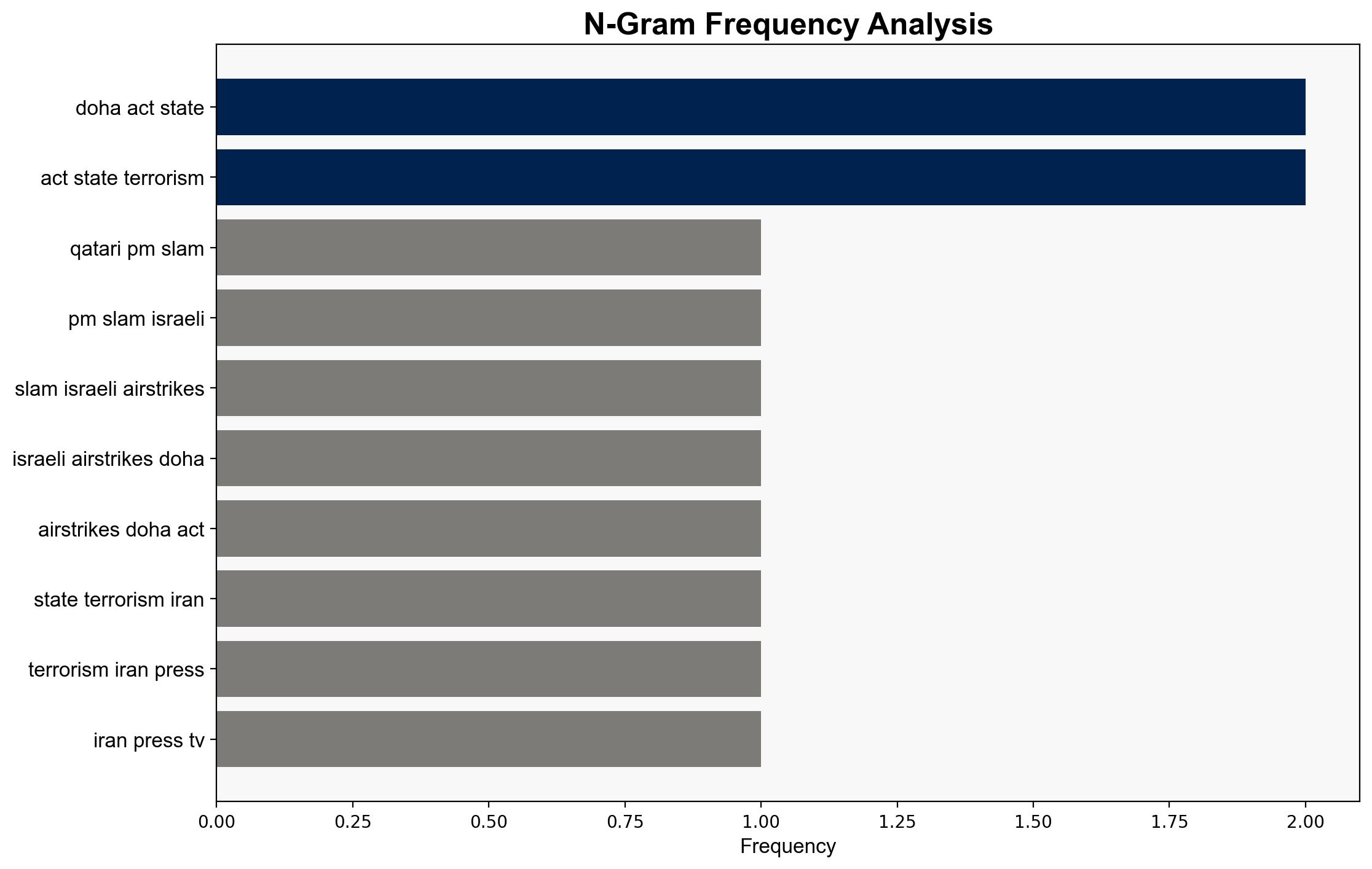Qatari PM slams Israeli airstrikes on Doha as act of ‘state terrorism’ – Globalsecurity.org
Published on: 2025-09-11
Intelligence Report: Qatari PM slams Israeli airstrikes on Doha as act of ‘state terrorism’ – Globalsecurity.org
1. BLUF (Bottom Line Up Front)
The most supported hypothesis is that the Israeli airstrikes on Doha are a strategic maneuver by Israel to assert dominance and deter Qatari support for Hamas. Confidence level: Moderate. Recommended action: Engage in diplomatic efforts to de-escalate tensions and reinforce regional alliances to prevent further escalation.
2. Competing Hypotheses
1. **Hypothesis A**: The Israeli airstrikes on Doha are a calculated move by Israel to disrupt Qatari support for Hamas and assert regional dominance.
2. **Hypothesis B**: The airstrikes are a result of a miscommunication or intelligence failure, leading to an unintended escalation of conflict.
Using ACH 2.0, Hypothesis A is better supported due to the historical context of Israeli actions aimed at countering Hamas and the explicit statements by Israeli leadership about reshaping regional dynamics. Hypothesis B lacks substantial evidence, as there is no indication of miscommunication from either side.
3. Key Assumptions and Red Flags
– **Assumptions**: Hypothesis A assumes Israel’s strategic intent aligns with its historical actions against perceived threats. Hypothesis B assumes a high likelihood of operational errors, which is not supported by available data.
– **Red Flags**: Lack of corroborative evidence from independent sources about the airstrike details. Potential bias in Qatari statements framing the incident as state terrorism.
– **Blind Spots**: Limited insight into internal Israeli decision-making processes and potential undisclosed communications between involved parties.
4. Implications and Strategic Risks
– **Geopolitical Risks**: Escalation of tensions between Israel and Qatar could destabilize the Gulf region, affecting global energy markets and regional alliances.
– **Cascading Threats**: Potential for retaliatory actions by Qatar or its allies, increasing regional instability.
– **Psychological Impact**: Heightened fear and uncertainty among regional populations, potentially leading to increased support for extremist groups.
5. Recommendations and Outlook
- Engage in multilateral diplomatic dialogues to de-escalate tensions and establish communication channels between Israel and Qatar.
- Strengthen intelligence-sharing frameworks to prevent future miscommunications and unintended escalations.
- Scenario-based Projections:
- **Best Case**: Successful diplomatic intervention leads to de-escalation and renewed peace talks.
- **Worst Case**: Escalation into broader regional conflict, drawing in additional state and non-state actors.
- **Most Likely**: Continued diplomatic tensions with sporadic incidents of violence, but no full-scale conflict.
6. Key Individuals and Entities
– Sheikh Mohammed bin Abdulrahman Al Thani
– Benjamin Netanyahu
– Khalil al-Hayya
7. Thematic Tags
national security threats, regional focus, geopolitical tensions, diplomatic relations





